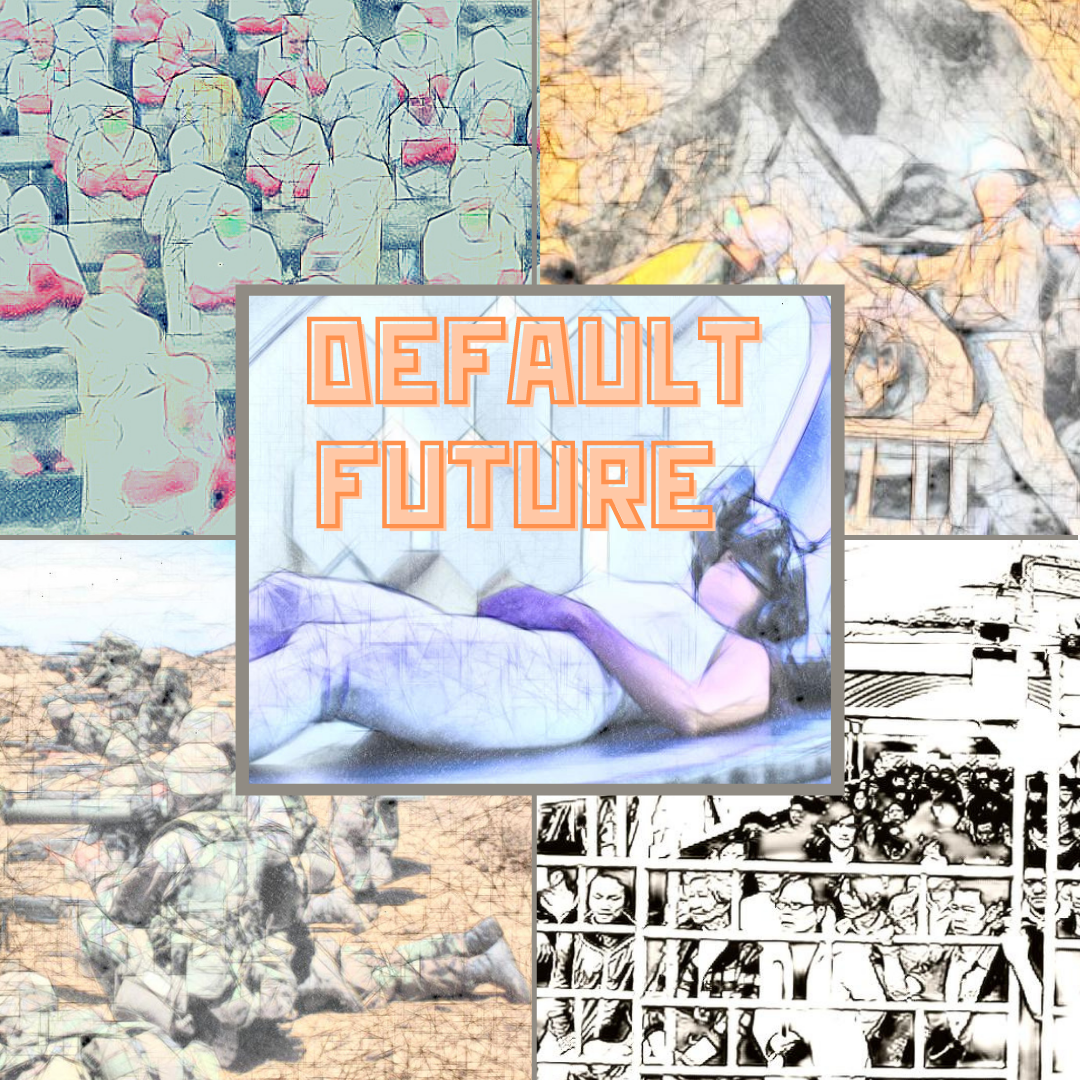Renaissance of the Renaissance Person: We should restructure society so anyone can try lots of things.
Inspired by the Break 'Em Up! discussion from People's Action today, I've been trying to imagine what I think fairness and justice would look like in the world. It's a lofty thought, but one that I don't think enough people take the time to envision in their day-to-day life. We all talk about how we want a fair society in an abstract way, but there is a grey area in the definition of fairness between the obviously unfair distribution of resources today, and another extreme of perfectly regimented identical distribution of life experiences. So today, I tried to define the thing I've come to cherish most, which I think should fundamentally be available to everyone on earth.
The freedom to be a Renaissance Person.
It's very hard to try to define the minimum floor that every person should deserve. It can be tempting to set the threshold based on some kind of material possession, like when everyone has a house or something like that. But I don't believe that's good enough. I think fairness and justice are both about giving a level of true freedom to every person. Some people might think we already offer that in the US, but that is obviously not true in a place where we don't even offer the bare minimum of survival. You can't have freedom without the freedom to not do anything for a month without the fear of financial ruin.
But still, there has to be more to life than just the bare ability to survive. That's why I think real agency starts when a person has the freedom to pursue more than one passion as if it could be their life-long career, but without pressure that any passion needs to support you for your whole life. And I think a good way to describe this is the freedom to be a Renaissance Person.
In defense of the Renaissance Person
To me, the beauty of the Renaissance Person is that they get to make decisions about what they believe is the most intrinsically good thing to pursue, without worrying about incentives from economic concerns. Importantly, I don't just believe that this kind of freedom is good for improving the kinds of things that get created. I think it's fundamentally good for the person. The opportunity to freely change their life's direction is a right that makes a person substantially more well-off than if they only have the right to pursue one career. My goal in life has been to become something of a renaisance person, and now that I'm starting to acheive that goal, I believe that's substantially benefited both my personal well-being and my standing in society.
For my whole life I've been trying to get to a place where I could have a little space to step away. For anyone who isn't born with excess wealth, we have to meet a bunch of obligations to transition our lives away from the stress of getting above water. And we don't really get the freedom to take a chance and create something that we believe in. Unless we get lucky enough to get past the crap, we end up trapped to pursue things that society effectively dictates to us.
I got lucky that I learned about the idea of early financial independence when I was pretty young. I got even more lucky that I was able to learn from the bad experience of my family that there are no "get rich quick" schemes that will get you to that independence.
But now that I'm arriving at this place, I'm convinced that this is something that getting everyone to this level might be one of the best things for improving the well-being of humanity.
How would we do it?
So what are the steps? Well, the whole problem boils down to redistribution of two things: our society's free time and access to information networks.
Redistributing free time
OK, I dodged the issue a little when I wrote "free time." The thing is, when I say redistribute our free time, what I mean is redistribute our f**king wealth. If someone wants to have any part of their life free to do what they want, they need to have a store of wealth or a guaranteed income to give them that freedom. Right now, most of our country doesn't get that freedom until their 60s.
There are a couple of big things to point out. In 2017, according to CNBC among 18 and 24 years old, 67 percent have less than $1,000 in their savings accounts and 46 percent had $0, and keep in mind that right now, those with college degrees will have an average of $30k in student debt. No one who starts their life in that state can risk anything. They have to walk a razor thin tightrope to get from just-hanging-on to the prosperity our country mythologizes.
Let me tell you my background because I was one of the tremendously lucky ones. When I was 22, I had $16k in debt. I had the opportunity to go to college, and I'd gotten through college with a physics, math, and comp sci education, graduating a semester early to save money and working 20+ hours every week plus working every summer since I was 13 (yes you can work at 13 in agriculture in Illinois). My mom had something like $20k in saving and a job that paid less than $20k per year, but my grandpa had managed to save a few thousand dollars to give me before he lost everything in one of those get-rich-quick Nigerian prince scheme. Then, over the past 10 years, I got a PhD, ramped up my income, and stored my money away to get to half a million dollars in the bank at 32. I'm not saying this to brag, I'm saying this to point out what I've got and how I came to have it.
So just now this year, I've gotten to the point where I feel I can finally breathe somewhat easily. I can get to the point where I can step back and take some chances with my life. I can try to experiment with new things for myself using my time now, and I don't even think about the fear of ending up homeless or worse anymore.
Why shouldn't everyone in this country be able to expect that they can reach this level of freedom long before retirement age? Why should only those with the privilege of intergenerational wealth be afforded that opportunity?
Redistributing access to information networks
This one seems to be getting better with the introduction of the internet, but it's important not to lose sight of hurdles that still exist. Today someone can get exposed to the state-of-the-art in a bunch of fields, but there are still many fields where that information is slowed down just far enough that an outsider could never catch up. In addition, due to the large number of people contributing in each field, the pace of advance is such that it becomes much harder to keep up fast enough to make any substantive contribution. Needless to say, fields shouldn't be shrunk or slowed down to accomadate the hobbyist. Instead, I think improvements in transparency in the process could help make a lot of the social mechanics of a field more transparent and give people more understanding of what's going on behind closed doors.
On the other end, it isn't always possible to get the word out about outsider work. While our public platforms allow people to publicize their non-establishment ideas, there is still a strong establishment bias. There are two sources of this. First, voices that have already been established in a field just fundamentally have an interest in crowding out new voices to maintain their own status. Second, with the financial incentives of platforms and organizations, it is much more valuable to preferentially amplify people who can be expected to remain in the field for a long time. For example, it makes a lot more sense to invest in an author that will generate 15 books over a lifetime than one who writes 2 books and then moves on to mathematics or sculpture.
For both of these issues, it seems the only fix is a cultural renaissance of the Renaissance Person. If it was customary for people to learn, progress, step back to make room, and then reform themselves in a new field, it'd be easier to accept new ideas and connections.
Conclusion
This post comes off as pretty prescriptive, but I just want to make sure it's clear that I don't think everybody should have to do this. I just think that being a Renaissance Person should be something that's available to everyone because it exemplifies the level of financial and social freedom that I think makes someone really free. Plus, I think a more well-rounded public with diverse experiences would really help us understand and accept each other better.
*I refer to this as a Renaissance Person instead of the traditional Renaissance Man because (as if it needs to be said), women and non-binary persons could be equally capable and interested to pursue lots of things too.
 will stedden
will stedden

